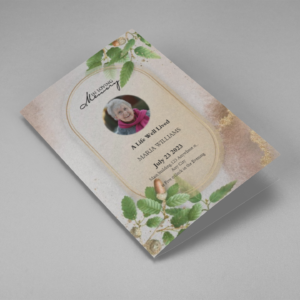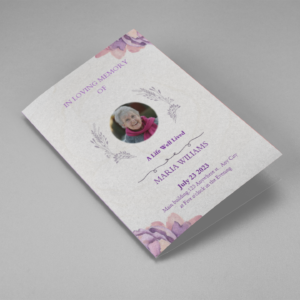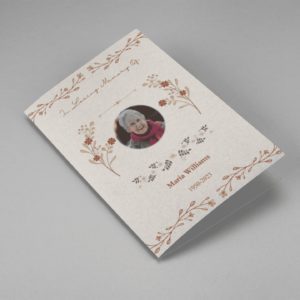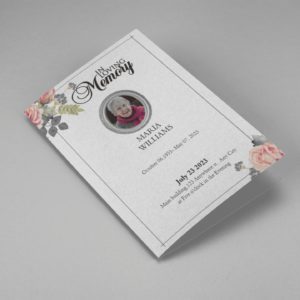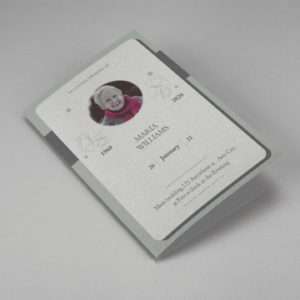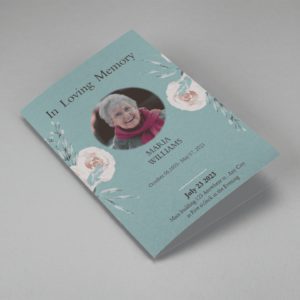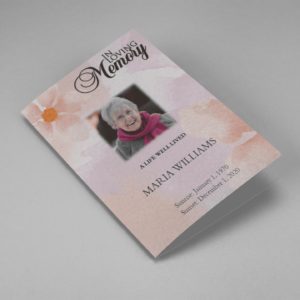Obituaries are a way to honor the life of a loved one and share their story with family, friends, and the community. Writing an obituary can feel overwhelming during a time of loss, but using Templates Of Obituaries can provide much-needed guidance and structure. This article will walk you through the benefits of using obituary templates, the different types available, and how to create a meaningful tribute for your loved one.
Introduction: What Are Obituary Templates?
An obituary template is a pre-structured format that helps guide you through writing an obituary. It includes placeholders for important information, such as the deceased’s name, dates of birth and death, family members, and a brief narrative of their life. These templates simplify the process of drafting a tribute, allowing you to focus on the personal details that matter most.
Whether you’re looking for a simple, formal announcement or a more detailed, personal tribute, obituary templates come in a variety of styles to meet different needs.
Why Use Obituary Templates?
During a time of grief, finding the right words to describe someone’s life and their legacy can feel like a monumental task. Templates of obituaries are valuable tools for several reasons:
1. Provides Structure
A template ensures you don’t miss any critical information. It guides you through the essential components of an obituary, such as important dates, family members, and the deceased’s key accomplishments, providing a framework to build upon.
2. Saves Time
With a pre-designed structure in place, you can quickly fill in the details without worrying about how to format or structure the obituary. This is especially helpful when you’re working within tight timelines to publish an obituary in newspapers or funeral programs.
3. Reduces Stress
The pressure of writing an obituary from scratch can add stress to an already difficult time. A template simplifies the process and gives you peace of mind, knowing that you are following a thoughtful, organized approach to memorializing your loved one.
4. Ensures Consistency
If multiple family members are contributing to or reviewing the obituary, a template ensures that everyone is working with the same format. This consistency makes it easier to produce a polished and cohesive obituary.
Components of an Obituary Template
Obituaries typically follow a standard structure, although the level of detail may vary depending on personal preference or publication guidelines. Most templates of obituaries include the following sections:
1. Full Name and Dates
The obituary typically begins with the full name of the deceased, including any titles, middle names, or nicknames they were known by. This is followed by their birth date and date of passing. For example:
“John Michael Smith, lovingly known as “Johnny,” passed away peacefully on October 10, 2024, at the age of 72.”
2. Early Life and Education
This section covers the deceased’s early years, such as where they were born and raised, details about their childhood, and any significant educational achievements. It provides context for who they were and what shaped their life.
“John was born on June 15, 1952, in Dallas, Texas, to Robert and Margaret Smith. He graduated from Southern Methodist University with a degree in engineering.”
3. Career and Accomplishments
Here, you can summarize the deceased’s professional life and any accomplishments or contributions they made in their field. This section can also include any significant hobbies or passions that defined their life outside of work.
“John worked as a civil engineer for over 40 years and played an integral role in developing infrastructure projects across Texas. He was also an avid gardener and a beloved member of the local horticultural society.”
4. Family and Personal Life
Mention close family members, such as spouses, children, grandchildren, and siblings, either as survivors or predeceased loved ones. This section often includes a brief mention of the deceased’s character and relationships.
“He is survived by his wife of 45 years, Linda, their two children, James and Sarah, and four grandchildren who were the joy of his life. John will be remembered for his kind heart, sense of humor, and deep devotion to his family.”
5. Cause of Death (Optional)
Some families choose to include the cause of death, while others may prefer to keep this information private. This is entirely optional and should be decided based on the family’s comfort level.
“After a courageous battle with cancer, John passed away surrounded by his loved ones.”
6. Funeral Service Information
Obituaries often end with details about the funeral service, such as the date, time, location, and any specific requests (e.g., donations in lieu of flowers). This information helps inform those who wish to attend or support the family.
“A memorial service will be held at Grace Church on October 15, 2024, at 11:00 AM. In lieu of flowers, the family requests donations be made to the American Cancer Society in John’s memory.”
Types of Obituary Templates
1. Traditional Obituary Template
This is the most common format, focusing on a factual, chronological recount of the deceased’s life. It includes details about their early life, career, family, and funeral arrangements. A traditional obituary is usually concise and published in newspapers or online memorial sites.
2. Personalized Obituary Template
For families who want to tell a more personal story, a personalized obituary allows for more creativity. It may include anecdotes, quotes, and specific memories that reflect the deceased’s personality and passions.
3. Short Obituary Template
Sometimes, a brief obituary is needed for space or budgetary reasons. A short obituary template condenses the essential information into a few lines but still honors the deceased’s memory.
4. Online Obituary Template
With the rise of digital memorials, online obituaries often include more details, such as additional photos, video tributes, and guestbook features where friends and family can leave comments. These templates are usually more flexible and can accommodate longer narratives.
How to Choose the Right Obituary Template
When selecting the right obituary template, consider the following factors:
1. Publication Format
Determine whether the obituary will be printed in a newspaper, posted online, or included in a funeral program. This will influence the length and style of the obituary. Newspaper obituaries often have word limits, while online obituaries allow for more flexibility.
2. Tone and Style
Decide whether you want a traditional, formal tone or a more personal, lighthearted narrative. The template should match the tone you want to convey in the tribute.
3. Time Constraints
If you are working under a tight deadline, such as for a newspaper submission, a simpler template that requires less personalization may be the best choice.
4. Family Input
If multiple family members are contributing to the obituary, choose a template that can easily accommodate different sections or memories. This ensures everyone can add their input without overwhelming the process.
Tips for Using Obituary Templates
- Personalize Where Possible: While templates provide structure, the obituary should still reflect the unique life of your loved one. Customize the template by adding personal details, stories, and character traits that define them.
- Collaborate with Family Members: Include close family members in the writing process to gather information and ensure no important details are overlooked.
- Proofread for Accuracy: Double-check all names, dates, and locations for accuracy before submitting the obituary to a newspaper or funeral program.
- Consider Length: If submitting the obituary to a newspaper, verify any word limits or formatting guidelines to ensure the submission meets their requirements.
Obituary Templates
-
Searching for a Oak Leaf With Gold Oval Frame Half Page Funeral Program that is easy to print and amass and has a cutting-edge look? The Oak Leaf With Gold Oval Frame Half Page Funeral Program is the Perfect decision because it measures 8.5”x 5.5”.
- No Limitation on Content, Edit anything
- Edit anytime – unlimited revisions even after purchased
- Get a printable PDF downloaded to get it printed on your own.
-
Searching for a Brown and White Classic Funeral Program Half Page Program that is easy to print and amass and has a cutting-edge look? The Brown and White Classic Funeral Program Half Page Program is the Perfect decision because it measures 8.5”x 5.5”.
- No Limitation on Content, Edit anything
- Edit anytime – unlimited revisions even after purchased
- Get a printable PDF downloaded to get it printed on your own.
-
Searching for a Purple Elegant Watercolor Half Page Funeral Program Template that is easy to print and amass and has a cutting-edge look? The Purple Elegant Watercolor Half Page Funeral Program Template is the Perfect decision because it measures 8.5”x 5.5”.
- No Limitation on Content, Edit anything
- Edit anytime – unlimited revisions even after purchased
- Get a printable PDF downloaded to get it printed on your own.
-
Searching for a Cream and Green Photo Obituary Half Page Program that is easy to print and amass and has a cutting-edge look? The Cream and Green Photo Obituary Half Page Program is the Perfect decision because it measures 8.5”x 5.5”.
- No Limitation on Content, Edit anything
- Edit anytime – unlimited revisions even after purchased
- Get a printable PDF downloaded to get it printed on your own.
-
Searching for a Cream Simple Elegant Photo Church Half Page Program that is easy to print and amass and has a cutting-edge look? The Cream Simple Elegant Photo Church Half Page Program is the Perfect decision because it measures 8.5”x 5.5”.
- No Limitation on Content, Edit anything
- Edit anytime – unlimited revisions even after purchased
- Get a printable PDF downloaded to get it printed on your own.
-
Searching for a Samovar Silver Half Page Funeral Program Template that is easy to print and amass and has a cutting-edge look? The Samovar Silver Half Page Funeral Program Template is the Perfect decision because it measures 8.5”x 5.5”.
- No Limitation on Content, Edit anything
- Edit anytime – unlimited revisions even after purchased
- Get a printable PDF downloaded to get it printed on your own.
-
Searching for an Elegant Beige Half Page Funeral Program Template that is easy to print and amass and has a cutting-edge look? The Elegant Beige Half-Page Funeral Program Template is the Perfect decision because it measures 8.5”x 5.5”.
- No Limitation on Content, Edit anything
- Edit anytime – unlimited revisions even after purchased
- Get a printable PDF downloaded to get it printed on your own.
-
Searching for a White Floral Pro Half Page Funeral Program Template that is easy to print and amass and has a cutting-edge look? White Floral Pro Half Page Funeral Program Template is the Perfect decision because it measures 8.5”x 5.5”.
- No Limitation on Content, Edit anything
- Edit anytime – unlimited revisions even after purchased
- Get a printable PDF downloaded to get it printed on your own.
-
Searching for a Grey and Burgundy Elegant Half Page Funeral Program Template that is easy to print and amass and has a cutting-edge look? Grey and Burgundy Elegant Half Page Funeral Program Template is the Perfect decision because it measures 8.5”x 5.5”.
- No Limitation on Content, Edit anything
- Edit anytime – unlimited revisions even after purchased
- Get a printable PDF downloaded to get it printed on your own.
-
Searching for a Soft Green and Grey Minimalist Floral Half Page Funeral Program Template that is easy to print and amass and has a cutting-edge look? Soft Green and Grey Minimalist Floral Half Page Funeral Program Template is the Perfect decision because it measures 8.5”x 5.5”.
- No Limitation on Content, Edit anything
- Edit anytime – unlimited revisions even after purchased
- Get a printable PDF downloaded to get it printed on your own.
-
Searching for a Gray Elegant Oval Frame Half Page Funeral Program Template that is easy to print and amass and has a cutting-edge look? Gray Elegant Oval Frame Half Page Funeral Program Template is the Perfect decision because it measures 8.5”x 5.5”.
- No Limitation on Content, Edit anything
- Edit anytime – unlimited revisions even after purchased
- Get a printable PDF downloaded to get it printed on your own.
-
Searching for a Blue Organic Minimal Half Page Funeral Program Template that is easy to print and amass and has a cutting-edge look? Blue Organic Minimal Half Page Funeral Program Template is the Perfect decision because it measures 8.5”x 5.5”.
- No Limitation on Content, Edit anything
- Edit anytime – unlimited revisions even after purchased
- Get a printable PDF downloaded to get it printed on your own.
-
Searching for a Pink and Orange Watercolour Half Page Funeral Program Template that is easy to print and amass and has a cutting-edge look? Pink and Orange Watercolour Half Page Funeral Program Template is the Perfect decision because it measures 8.5”x 5.5”.
- No Limitation on Content, Edit anything
- Edit anytime – unlimited revisions even after purchased
- Get a printable PDF downloaded to get it printed on your own.
-
Searching for a Pink Floral Paper Half Page Funeral Program Template that is easy to print and amass and has a cutting-edge look? Pink Floral Paper Half Page Funeral Program Template is the Perfect decision because it measures 8.5”x 5.5”.
- No Limitation on Content, Edit anything
- Edit anytime – unlimited revisions even after purchased
- Get a printable PDF downloaded to get it printed on your own.
Funeral Programs : Helping Videos
Frequently Asked Question On Templates Of Obituaries
What is an obituary template?
An obituary template is a pre-designed format that helps guide you through writing an obituary. It includes placeholders for key information about the deceased’s life, such as their birth and death dates, family members, and accomplishments.
How do I use an obituary template?
Using an obituary template is simple. You can download or choose a template, then fill in the blanks with the relevant information about the deceased. Templates often provide sections for important details like the date of birth, date of passing, family members, and the funeral service information.
Are obituary templates customizable?
Yes, most obituary templates are customizable. You can personalize the design, fonts, colors, and text to fit the personality of your loved one. This flexibility allows you to create a unique tribute that reflects their life and legacy.
Can I include photos in an obituary template?
Yes, many obituary templates allow space for photos. Including a photo of the deceased can add a personal touch to the obituary and provide a visual remembrance for those attending the service or reading the obituary online.
What information should I include in the obituary template?
An obituary typically includes the deceased’s full name, age, date of birth, and date of passing, as well as significant life events, family members, and details about the funeral or memorial service. You can also include a personal message, quotes, or anecdotes that honor their memory.


